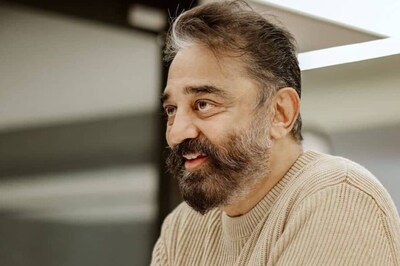
views
London: Europe has a lot riding on NATO's mission in Libya, with the campaign widely seen as one spearheaded by European vision and the United States staying on the sidelines.
But as the conflict enters its fourth month, the continent's military leaders are beginning to ask if they can afford to keep up the fight, raising more questions about Europe's commitment after big talk from the leaders of Britain and France.
Britain's top naval officer, Adm Mark Stanhope, warned on Monday that his nation - its military hobbled by severe budget cuts and the continuing cost of the Afghan war - would face hard decisions if the Libya mission is not resolved by September.
"If we do it longer than six months, we will have to reprioritize forces," he said, indicating the current commitments cannot be maintained indefinitely.
Libya has turned into a major test case for a NATO still seeking to define itself decades after the Cold War. US strategic planners advocate its use in combat missions in Afghanistan, but European leaders have preferred it to be used for "soft power" to pressure countries to become more democratic.
In taking the fight to Libya, British Prime Minister David Cameron and French President Nicolas Sarkozy have sought to dispel the notion that NATO's European members lack military steel. They argued that using NATO to enforce a no-fly zone over Libya would help prevent a humanitarian calamity. The UN Security Council initially authorized a 90-day operation for civilian protection.
But Libyan leader Moammar Gadhafi has proven to be much more tenacious than expected. Instead of yielding, he unleashed his troops on those who wanted him out.
"This has been a bit of a virility test for the French and the British to show they can do this by themselves, but they have been struggling, with munitions, equipment, everything," said Anand Menon, professor of European politics at Birmingham University.
"It's costing a fortune," Menon said. "It's a curious thing that in the age of austerity, they are able to embark on a mission like this."
The cost of the mission itself remains unclear.
The Pentagon provided an estimate of $608 million in early April, but that was just for US contributions. Shashank Joshi, an analyst with the Royal United Services Institute, suggested Libya operations could cost Britain 900 million pounds ($1.4 billion) if they continue until September.
France is now spending about euro1 million ($1.4 million) per day in Libya beyond what's already been budgeted for the military this year, said Gen. Philippe Ponties, a French Defense Ministry spokesman. With the operation hitting its 90th day for France, he said the excess cost so far totals about euro87 million ($126 million).
Britain's chief of defense staff, Gen. David Richards, insisted Tuesday that Britain can continue operations in Libya as long as it needs to. But another senior NATO official echoed Stanhope's comments, saying that if the alliance's intervention in Libya continues, the issue of resources will become "critical."
Gen Stephane Abrial, the senior NATO commander, told reporters at a NATO conference in Serbia that "at this stage, the forces engaged do have the means necessary to conduct the operation."
But he noted that "if the operation were to last long, of course, the resource issue will become critical."
"If additional resources are needed, this, of course, will need a political decision," he said.
Last week, US Defense Secretary Robert Gates offered an unusual public rebuke to America's European allies, saying NATO's shaky operations in Libya exposed the alliance's shortcomings and opened the "real possibility of collective military irrelevance." Gates urged members to look at new ways of raising combat capabilities in procurement, training and logistics.
Gates' criticism comes at a time when several European countries decided to reduce their defense spending to balance the books - much to the alarm of their militaries, which say the cuts leave countries with no spare capacity.
Britain is carrying out steep spending cuts intended to cut its budget deficit. The aircraft carrier HMS Ark Royal and its Harrier jump jets were scrapped in a wide-ranging review in October. Military strategists point out that had the Ark Royal remained in place, the Harriers could have been deployed in 20 minutes, rather than the 90 minutes taken to send Tornado and Typhoon aircraft from a base in Italy.
Gaddafi's grip on power shows no sign of loosening. Although army officers and several Cabinet ministers have defected, with many joining the opposition, the regime remains in place - even though the alliance has intensified its airstrikes this month.
NATO insists the mission is succeeding.
"We've very significantly degraded Gaddafi's ability to attack his own people," said NATO spokeswoman Oana Lungescu. "The situation is constantly evolving."
Cost and munitions aside, the political clock is also ticking for Sarkozy: Under France's constitution, any foreign military venture needs parliamentary approval to go beyond four months - a deadline fast approaching.
"For the next 15 days, I think Sarkozy is going to have pretty fair sailing, and the whole thing may end in the next 15 days, but if it hasn't, then we're going to start entering uncharted political waters," said Francois Heisbourg, director of the Foundation for Strategic Research think tank in Paris.
"Will he get the authorization? Yes, he will," Heisbourg said. "Will it be easy? That, I'm not so sure."
And while many fret about the resources being poured into Libya, Andrea Nativi, a scientific adviser to the Rome-based military and intelligence think tank ICSA, said NATO could win and do it more quickly if it was not hampered by its own rules of engagement - limiting targets and the types and amounts of weapons used.
"If Gaddafi's taking a beating, but he's resilient and not caving in, maybe we should be saying we should be intensifying it a little," Nativi said. "You can't say you're going to do a little war."




















Comments
0 comment